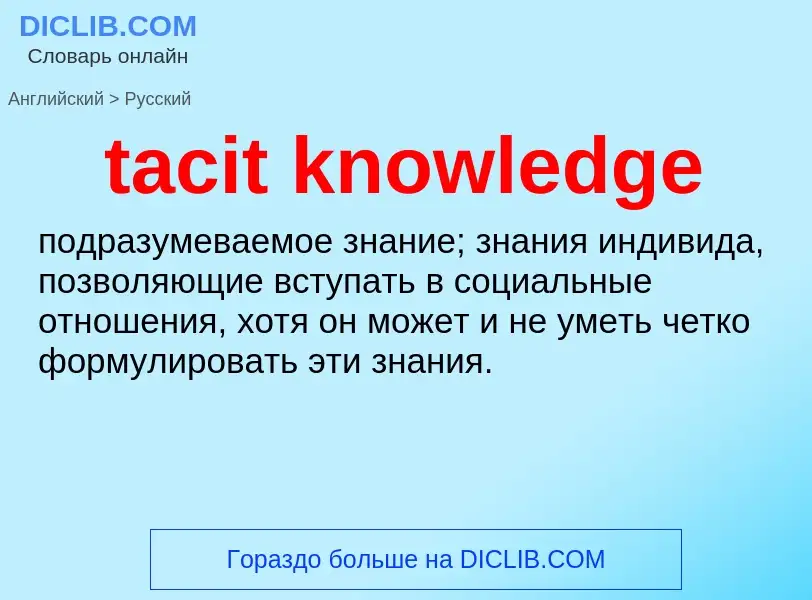Translation and analysis of words by ChatGPT artificial intelligence
On this page you can get a detailed analysis of a word or phrase, produced by the best artificial intelligence technology to date:
- how the word is used
- frequency of use
- it is used more often in oral or written speech
- word translation options
- usage examples (several phrases with translation)
- etymology
tacit knowledge - translation to russian
['tæsit]
прилагательное
общая лексика
подразумеваемый
не выраженный словами
молчаливый
безмолвный
не сопровождающийся словами
неписаный (о законе и т. п.)
синоним
Definition
Wikipedia
Tacit knowledge or implicit knowledge—as opposed to formal, codified or explicit knowledge—is knowledge that is difficult to express or extract, and thus more difficult to transfer to others by means of writing it down or verbalizing it. This can include personal wisdom, experience, insight, and intuition.
For example, knowing that London is in the United Kingdom is a piece of explicit knowledge; it can be written down, transmitted, and understood by a recipient. In contrast, the ability to speak a language, ride a bicycle, knead dough, play a musical instrument, or design and use complex equipment requires all sorts of knowledge which is not always known explicitly, even by expert practitioners, and which is difficult or impossible to explicitly transfer to other people.

